Uppsala University
Uppsala University is coordinating the ShipTRASE project and is responsible for scenario development and modelling of the combined effects of environmental, legal and economic aspects of changes in shipping fuel and cleaning methods.
We aim to answer the following questions:
1. What is the expected mix of fuels for future shipping, when considering legal, economic factors and technical developments?
2. What is the consequences of the suggested fuel mix for climate and environment?
We aim to achieve the following objectives:
- Develop multiple scenarios to model the shipping emission reduction strategies based on Energy Mix, Fuel & technology availability, Technology maturity, Fuel Price and Regulation & Incentive.
- Modelling the line emissions and propose a new high-resolution inventory based on current fuels with abatement technologies, and alternative fuels like, LNG, Hydrogen, Methanol and Ammonia
- Quantify the contribution of shipping to pollutants: Carbon dioxide, Methane, NMVOCs, Hydrocarbons, Sulphur dioxide, Sulphate Aerosols, Nitrogen oxides, Ash, Particulate matter (PM), Organic & Elementary Carbon and Scrubber discharge.
- Climate modelling using WRF-Chem by Integrating the baseline and projected emissions inventory to assess the near-term (2030) and long-term (2050) impacts over Baltic Sea Region.
- Assess the progress made toward reducing emissions in line with international regulations.
- Develop a decision Support system to aid decarbonisation in shipping with minimal climate impact
Prof. Dr. Anna Rutgersson
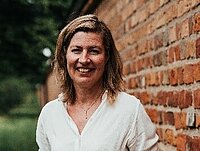
Anna Rutgersson is professor of meteorology at Uppsala University. Her research focuses on various aspects of air-sea interaction and extreme events in the climate system. Her work includes taking and using fields observations and development of numerical models, as well as evaluating impacts of ship emissions on lower atmosphere and upper ocean. Prof. Rutgersson is the PI of the ICOS field station Östergarnsholm in the Baltic Sea. She is member of the SSG in Baltic Earth and a previous member of the SOLAS SSC as well and Baltic Earth SSG.
Dr. Rohan Kumar
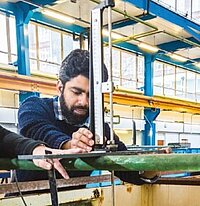
Rohan Kumar is a Researcher in the Department of Earth Sciences at Uppsala University, specialised in Climate Change mitigation, with a key focus on Climate, Energy and Emission Modelling. He earned his Ph.D. in Civil Engineering from the University of Manchester, conducting research on the techno-economic assessment of large-scale offshore wind farms at varying depths. In his previous roles, he successfully applied his technical knowledge to develop and implement models for climate mitigation programs, including the Clean Development Mechanism (CDM), and large-scale Renewable Energy Projects.
GEOMAR Helmholtz Centre for Ocean Research Kiel
GEOMAR is the German coordinator of the ShipTRASE project and is responsible for the seawater manipulation experiments performed within WP2 and WP3. During the experiments, scrubber effluent and particulate material are added to natural seawater and monitored to track the change of climate active biogenic trace gases isoprene and DMS and related parameters.
We aim to answer the following questions:
1. What is the effect of scrubber and atmospheric emissions on trace gas cycling and biogeochemistry in the surface ocean?
2. Is there a subsequent effect on air-sea exchange?
3. Is there a difference in impacts with open and closed-loop scrubbers?
Dr. Christa Marandino
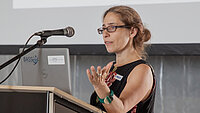
Copyright: Edson Silva Degado
Dr. Christa A. Marandino, PD is a permanent scientist at GEOMAR and leader of the group “Trace gas air-sea exchange”. Her research focuses on the air-sea biogeochemical cycling of short-lived, atmospherically important trace gases, such as DMS and isoprene, as well as open ocean direct flux measurements using the eddy covariance technique. She teaches courses on marine/atmospheric chemistry and gas exchange at the Bachelor, Master, and PhD level. Dr. Marandino is the co-chair of SOLAS and has led several SOLAS initiatives, such as SOLAS Science and Society and the SOLAS International Summer School. In addition, Dr. Marandino is the co-chair of the UN Ocean Decade program Observing Air-Sea Interactions Strategy (OASIS).
Dr. Dennis Booge

Dr. Dennis Booge is a postdoc at GEOMAR within the group “Trace gas air-sea exchange”. He studied chemistry at the Kiel University and did his PhD on Marine isoprene - Formation, emissions and their impact on the atmospheric chemistry in the research unit "Marine Biogeochemistry" at GEOMAR. He is an expert on biogeochemical cycling of e.g. isoprene, dimethyl sulfide and other sulfur compounds and investigates the influence of the surface microlayer on the air-sea gas exchange of these biogenic trace gases (BASS). In addition, he has been working on halogenated compounds (e.g. bromoform) including the evaluation of the biogeochemical cycling within Earth System models (KeyClim). He is skilled in various analytical techniques, as e.g. gas chromatography coupled to various detection methods. He has authored multiple publications in scientific journals and participated in several research cruises, partially leading them as chief scientist.
Kiel University
Prof. Dr. Nele Matz-Lück
Dr. Shams ad-Din al-Hajjaji
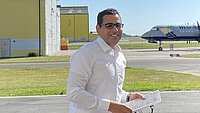
Dr. Shams Al-Hajjaji is a research associate for the ShipTRASE project at Walther Schücking Institute for International Law, where his work concentrates on developing environmentally progressive practices within the maritime sector. He holds a JSD/LLM from University of California Berkeley Law School (2016), and PhD from University of Luxembourg (2020). His expertise in environmental law is pivotal in advancing the project's aim for sustainable shipping and the achievement of zero-emission targets. Dr. Alhajjaji is also the coordinator of the Ocean Justice Research and Training Group.
École Polytechnique
Prof. Dr. Laura Recuero Virto

Laura Recuero Virto has expertise on radio frequency, natural resource conservation, and infrastructure economics. She has recently worked for the Ocean University Initiative at the European University for Marine Affairs as research coordinator with a special focus on underwater noise propagation and its impact on biodiversity. She has previously worked for the French Ministry of foreign affairs as head of unit on economic analysis and globalization and chief economist, as well as for the OECD, the French Regulatory Authority on Telecommunications, the French Electronic Communications, Postal and Print media distribution Regulatory Authority, the French Regulatory Authority for Railway and Road Activities, Télécom ParisTech, the World Bank Institute, Nortel Networks, le Centre National d'Etudes Spatiales and the European Space Agency. At Télécom ParisTech, Nortel Networks, and the French and European space agencies, she worked on radio frequency R&D and operational projects. At the OECD, she contributed to the African economic outlook, with a special focus on telecom infrastructure. She has contributed to ministerial meetings on telecom infrastructure (African Union, OECD-NEPAD) and has media appearances in Le Monde, Financial Times, Les Afriques, RFI, amongst others. She was recently seconded to the Environment Directorate at the OECD to produce content on the potential contribution of the OECD to marine spatial planning and to the indicators on the Sustainable Development Goal 14 ?Conserve and sustainably use the oceans, seas and marine resources for sustainable development?. She has given courses on environmental and natural resource economics at Mines ParisTech, SciencePo Paris and on econometrics and biodiversity economics at the Polytechnic School of Paris. She holds a B.A. degree on telecommunications engineering, an MBA on international trade (Polytechnic University of Madrid), a PhD in economics (Toulouse School of Economics), and a PhD in environmental engineering with a focus on biodiversity conservation (Polytechnic University of Madrid). She has an HDR (Habilitation pour diriger des recherches) from Paris Dauphine since 2016.
Dr. Maxime Sèbe
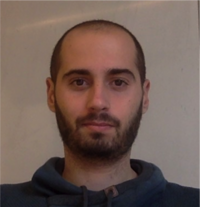
Maxime Sèbe is a postdoc at the Polytechnic School of Paris and the Mediterranean Institute of Oceanography. Maxime first worked on the sharks and turtles monitoring for the French Wildlife Agency (ONCFS). Then, Sèbe joined the French Marine Protected Areas Agency (AAMP-AFB), as lead scientist, then manager of the Agoa sanctuary for marine mammals protection.
He then undertook a PhD in Conservation Sciences at the AMURE marine economics laboratory (UBO). Specialized in maritime transportation and marine mammals, Maxime’s thesis aims to bring solutions to one of the biggest threats to cetacean: ship strikes. To this end, the use of an interdisciplinary approach is needed to conciliate the shipping companies' Blue Growth with marine mammal conservation.
Thanks to his expertise on maritime transportation, Maxime joined the ShipTRASE project as a postdoc in order to work on the economic dimension and the prospective part of the project.
Dr. Fabien Yao
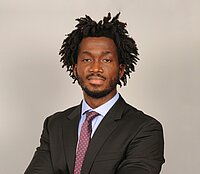
Fabien Yao is a PhD in Maritime Economics from Université de Bretagne Occidentale (Brest, France). He is a postdoc at the Management Reasearch Centre of Ecole Polytechnique de Paris, where his research focuses on the market mechanisms that incentivize port authorities and shipping companies to reduce their emissions.
His PhD research focused on regional equity between the French coastal and non-coastal communities in the costs of provision of public services and protection against marine hazards. Prior to that, he has worked in French parapublic organizations (Agence d'urbanisme) where he contributed in the assessment of the impact of tax reforms on local governments.
Chalmers University of Technology
Dr. Kent Salo
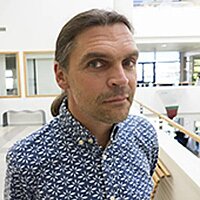
Dr. Kent Salo is a Senior Lecturer at Chalmers University of Technology in Gothenburg, Sweden. He is the head of the unit for Maritime Environmental Sciences at the division of Maritime Studies which is a part of the department of Mechanics and Maritime Sciences. Since his PhD in Natural Science with a focus on Chemistry (2011), he has been involved in several research projects with a focus on characterization of emissions to the atmosphere from ships. He has a broad experience of engine lab studies, measurements onboard ships and remote measurements of ship emissions. Maritime Studies is responsible for the education and training of future Marine engineers and Master Mariners where Kent does most of his teaching on the topic of environmental aspects of shipping and other maritime activities.
Prof. Dr. Johan Mellqvist
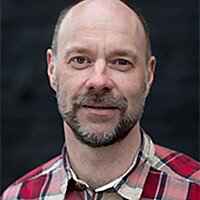
Johan Mellqvist is professor in the optical remote sensing group at the division for Geoscience and Remote Sensing. He focuses his research on the development of spectroscopic optical methods and to use these to gather data related to different environmental problems. This includes estimating trends of various gaseous species in the large-scale atmosphere to working with air quality issues with particular focus on mapping and quantifying fugitive emissions of gases from industries and to control ship emissions. Johan is a national expert in measuring diffuse emission of hydrocarbons (VOC) and he works with European standardization (CEN).
Dr. Alexander Vladimir Conde Jacobo
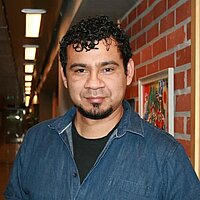
Dr. Vladimir Conde is a Senior Research Engineer in the optical remote sensing group at the division for Geoscience and Remote Sensing. He has many years of experience of measurements and evaluation of data from ships. Measurements have been conducted from mobile (cars, planes, helicopters and ships) and fixed platforms.



